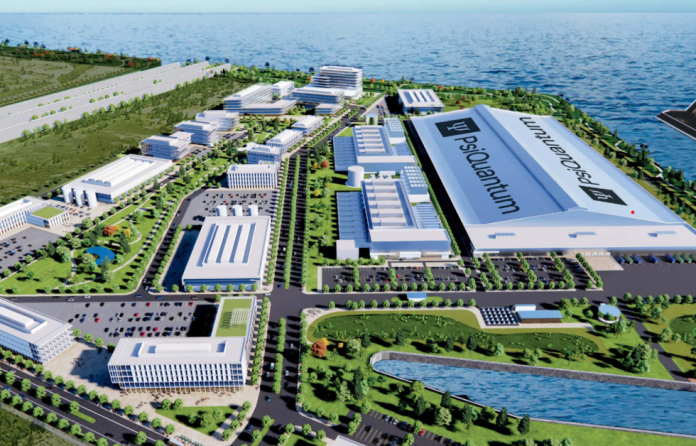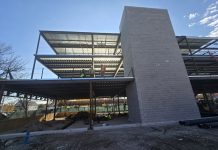Chicago Construction News staff writer
PsiQuantum has begun construction on its site at the Illinois Quantum and Microelectronics Park (IQMP) in Chicago, marking the start of work on what will be America’s first million-qubit scale, fault-tolerant quantum computer.
The project is being developed in multiple phases, with the initial phase focused on PsiQuantum’s largest intermediate-scale test system, which will be evaluated by the Defense Advanced Research Projects Agency (DARPA) under its Quantum Benchmarking Initiative. Subsequent phases will ultimately deploy the full million-qubit system.
Development is a collaborative effort: Related Midwest and CRG are co-developing the site, Clayco serves as the general contractor, and Lamar Johnson Collaborative is the lead designer. Financing is provided by Blue Owl Capital funds. PsiQuantum is also partnering with GlobalFoundries in New York to manufacture its photonic quantum chips, which are central to the company’s approach to scalable, fault-tolerant quantum computing.
“The Illinois Quantum and Microelectronics Park is about more than technology, it is about transformation for South Chicago,” said Chicago Mayor Brandon Johnson. “This investment will bring new jobs and educational pathways while also paving the way for expanded health care and community amenities, including a new Advocate Health hospital and expanded access to the lakefront. Together we are showing what it looks like when innovation uplifts neighborhoods and creates lasting benefits for residents.”
Co-founder and CEO Prof. Jeremy O’Brien said the groundbreaking represents “hard work, close partnership, and a shared commitment to unlock the full potential of quantum computing,” adding that the company is poised to deploy quantum computing “right here on Chicago’s South Side.”
PsiQuantum’s photonic approach leverages high-volume semiconductor manufacturing and conventional telecom fiber to address challenges in manufacturability, cooling, networking, and control electronics. The company recently raised over $1 billion in Series E funding to advance its fault-tolerant systems, with plans to begin a parallel utility-scale site in Brisbane, Australia.






